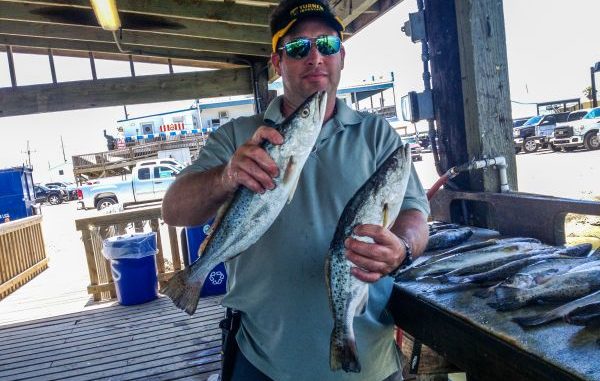
Population analysis forthcoming, agency biologist promises
The head fisheries biologist with the Louisiana Department of Wildlife and Fisheries said tough fishing this spring doesn’t necessarily point to problems with the fishery.
That said, Pausina continued to decline to release any analysis of scientific data collected by his agency in keeping with LDWF’s stance following the BP oil spill.
However, he signaled data could be released within months, since his staff is currently working on a four-year update to the stock assessment.
“I think we’re close to being able to release that information,” Pausina said.
While he dodged specifically discussing scientific data, Pausina said trout populations are cyclical, and a slow year is to be expected.
And he said none of his staff members have expressed alarm about the data they are working through to update the stock assessment.
He said the weather in the winter and spring did impact commercial species.
“I don’t remember a winter like we had this year,” Pausina said. “A lot of the commercial species (including menhaden, crabs, shrimp) were very late.”
He pointed out that the shrimp season was delayed because of this delay in development.
Pausina said he suspects trout populations will bounce back.
“You don’t normally see a population shift that quickly,” he said. “Think about those massive freezes we’ve had: The fish just bounce right back.”
At the same time, he said tracking recreational landings of speckled trout is important, since regulations allow for a year-round season.
“Recreational landing data is a good indication of what’s going on,” Pausina said. “Recreational landings will provide the first indication of any problem.”
That’s because stock assessments are, by their very nature, backward looking. Pausina said biologists only have great confidence in fishery-independent data that is at least six years old because it takes that long for a year class to work its way through the fishery.
“Three years out you may see some signed, but you don’t have confidence,” he explained. “You’ve got to be six years out from an incident before you start being able to have great confidence (in the findings).”
And while his staff will continue to track recreational landings, Pausina said he suspects this year’s weird fishing is just a blip.
“You expect to have a good recruitment year every four or five years, and it carries the population,” he said. “As long as you get that good recruitment, you’ll be OK.
“We’ve had years like this before, and they recover.”


